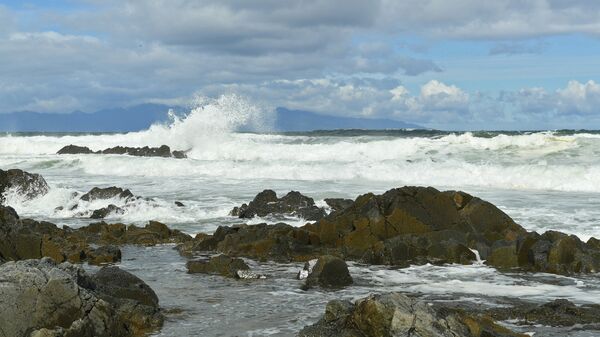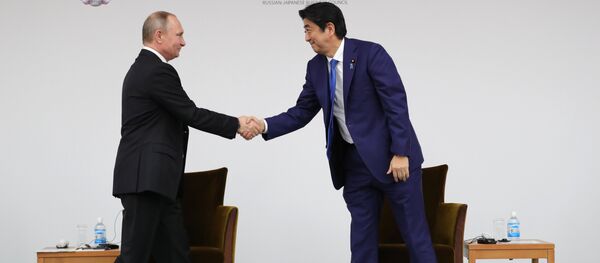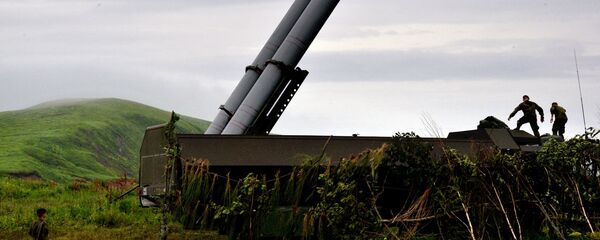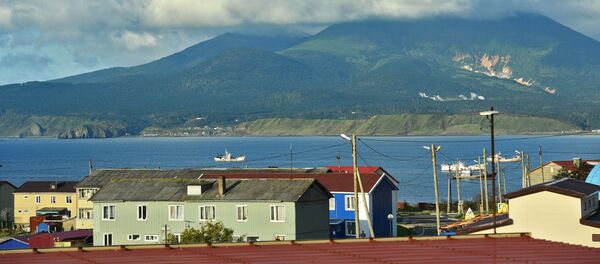He recalled that earlier this week, Japan lodged a formal protest with Russia for giving names to five unnamed Kuril Islands. This followed a move last week by Russian Prime Minister Dmitry Medvedev to approve the decision to name five smaller islands in the archipelago after prominent Russians.
Kremlin spokesman Dmitry Peskov, for his part, said that the Kuril Islands remain Russian territory, so naming five of them is Russia's sovereign right.
Japan has rival claims to several islands in the South Kurils: Iturup, Kunashir, Shikotan and Habomai.

The dispute has remained unresolved since the end of World War II. Japan and Russia never signed a permanent peace treaty after the war due to a disagreement over the four islands, which Russia calls the Southern Kurils and Japan refers to as the Northern Territories.
On December 15-16, 2016, Russian President Vladimir Putin visited Japan to meet Prime Minister Shinzo Abe. The leaders agreed to establish joint economic activity on the islands in order to create favorable conditions for talks on a peace treaty between the countries.
Earlier, Russian authorities repeatedly said that Moscow's sovereignty over the islands is unquestionable. Putin said ahead of his visit to Japan that the Kuril Islands are an integral territory of Russia, which it rightfully received following the Second World War.
Commenting on the matter, Ardayev said that almost every move by Russia related to the Kuril Islands prompts indignation and protests in Japan.
"It is unlikely that such steps will help the two sides arrive at a consensus on the peace treaty," he said.
"As for Tokyo's nervous reaction, it is caused by the sentiments currently prevailing in Japanese society, something that is actively used by the Japanese opposition to oppose Prime Minister Shinzo Abe's government," Koshkin said.
Referring to Russia's deployment of its Bal and Bastion mobile anti-ship missile systems to the Kuril Islands in November 2016, Koshkin said that the islands are of great strategic importance, and tghat the deployment of these missile systems there does not necessarily mean that the goal is to target Japan.
Nice #volcanic #plug. Island of #Urup #Kuril #Islands #Sea of #Okhotsk in the northwest Pacific Ocean. From #unusualplaces pic.twitter.com/2myMpvUEig
— Stan Stanbrook (@DrStanStan) 4 февраля 2017 г.
Ardaeyev also quoted Russian expert Yuri Byaly as saying that "each of the parties seeks to demonstrate that achieving a compromise on the matter is almost impossible given the sides' current stances on the peace treaty."
In this regard, the US withdrawal from the Trans-Pacific Partnership added significantly to Tokyo adhering to its position on the Kuril Islands, according to Byaly.
He said that Tokyo was recently sure that no further action in the field of defense cooperation with the West is needed "since the economic interests of the US and Japan will be automatically protected by American military power in its entirety."
"Now this has been called into question and, therefore, Japan should strengthen its own defense capabilities and expand its military cooperation with the United States. At the same time, Tokyo is seeking to designate the risks and threats of such cooperation for its partners in the negotiations, so that they can cherish no illusions," Byaly said.
He was echoed by Anatoly Koshkin, who pointed out that Tokyo sees the peace treaty as nothing but a tool to expand Japanese territory.
"For the Japanese, the peace treaty with Russia is little more than euphemism and they only mention it in the context of their demands that Russia should return the Kuril Islands to Japan. Tokyo's stance is that no other provisions of the peace treaty are significant because all other problems were resolved six decades ago in a joint statement signed on October 19, 1956," Koshkin said.
Yury Byaly, for his part, said that "in modern-day reality, when the illusion of an onset of a globalized world is fading away and a return to state policies favoring national interests become more distinct, we can hardly overestimate the importance of such an instrument as a peace treaty."
Never miss a story again — sign up to our Telegram channel and we'll keep you up to speed!





